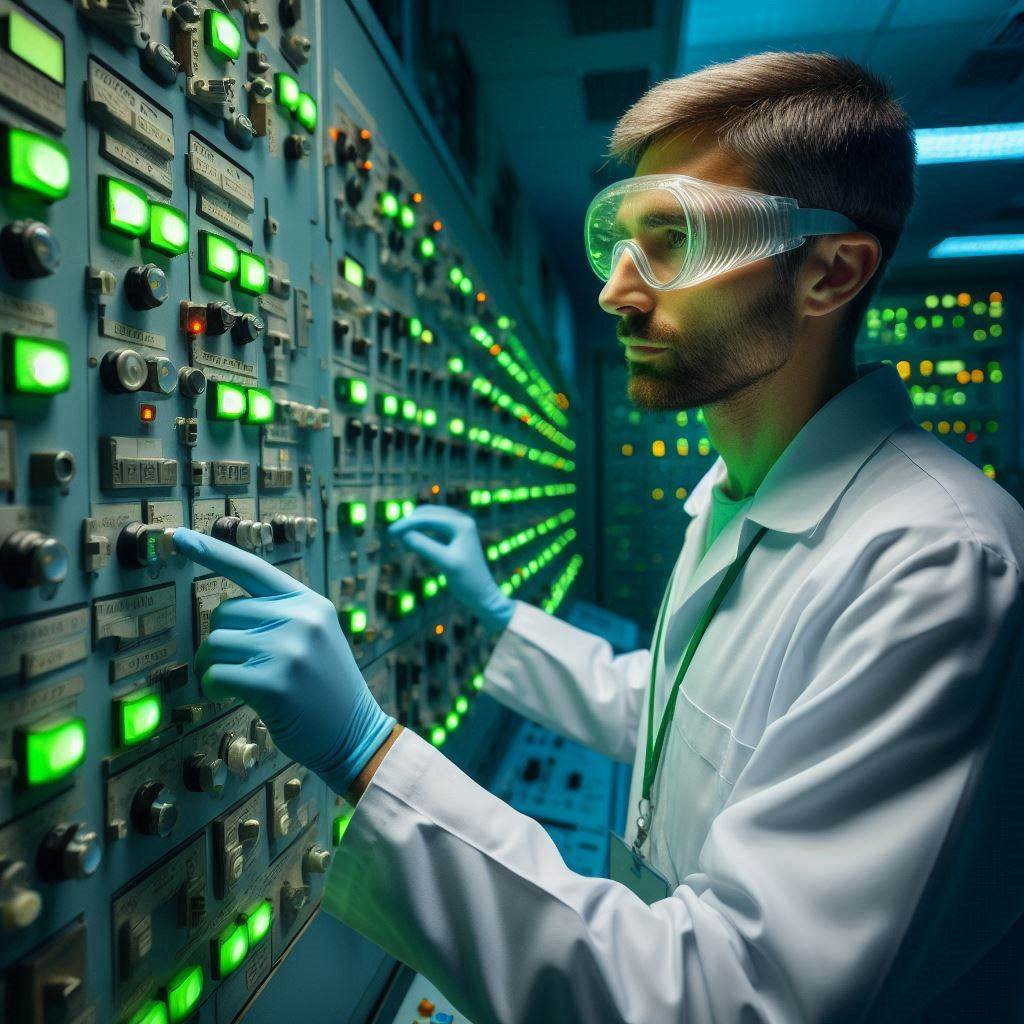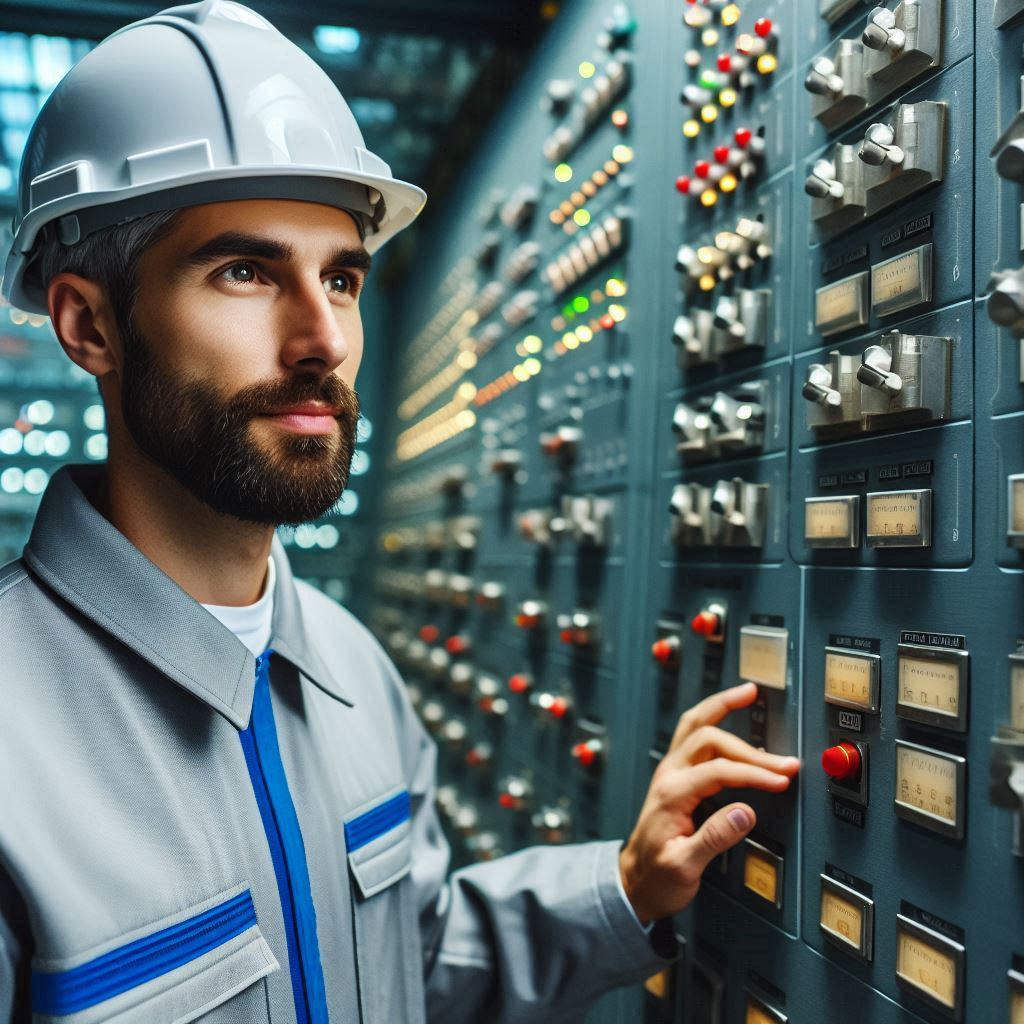Introduction
Nuclear engineers play a vital role in combating climate change.
Their work focuses on harnessing nuclear power to reduce greenhouse gas emissions.
Unlike fossil fuels, nuclear energy produces minimal carbon dioxide, making it a crucial alternative.
The primary task of nuclear engineers is to design, operate, and improve nuclear reactors.
These reactors generate large amounts of electricity with low environmental impact.
By transitioning from coal and gas to nuclear power, we can significantly cut carbon emissions.
Moreover, nuclear engineers work on developing advanced reactor designs.
These include safer, more efficient reactors that minimize waste and enhance safety.
Innovations such as small modular reactors (SMRs) promise to make nuclear power more accessible and adaptable.
Another key aspect of their role is managing nuclear waste.
Engineers develop methods to safely store and dispose of radioactive materials, ensuring long-term environmental protection.
Proper waste management is essential for maintaining public trust and advancing nuclear technology.
Nuclear engineers also contribute to research in fusion energy.
Fusion promises a nearly limitless, clean energy source, although it remains in experimental stages.
Advancing fusion technology could revolutionize how we approach energy and climate change in the future.
Development of advanced nuclear power technologies
Research and Development Efforts by Nuclear Engineers to Create More Efficient and Sustainable Nuclear Power Technologies
In research and development, nuclear engineers are making significant strides toward more efficient and sustainable nuclear power technologies.
They focus on advancing reactor designs to improve safety, reduce waste, and enhance overall efficiency.
One notable effort is the development of small modular reactors (SMRs).
SMRs are compact and scalable, offering flexibility in deployment and operation.
Their advanced safety features and reduced environmental impact make them a promising choice for future energy solutions.
Engineers are also working on molten salt reactors, which use molten salt as a coolant.
This design allows for higher operating temperatures and better efficiency.
Molten salt reactors generate less long-lived radioactive waste compared to conventional reactors, making them more sustainable.
Researchers are rigorously testing these reactors to ensure they meet safety and performance standards.
Another innovative approach is the use of thorium reactors.
These reactors utilize thorium instead of uranium, a more abundant and easier-to-process material.
Thorium reactors offer enhanced safety and reduced environmental impact, with a lower risk of nuclear proliferation.
Engineers are exploring these reactors for their potential to transform the nuclear power landscape.
The Potential of Advanced Nuclear Reactors to Provide Clean Energy Solutions
Advanced nuclear reactors hold tremendous potential for providing clean energy solutions.
These reactors are designed to produce minimal greenhouse gas emissions, addressing a key challenge in the fight against climate change.
By reducing reliance on fossil fuels, they offer a stable and reliable source of power.
The innovations in nuclear reactor technology promise a future where energy needs are met with greater efficiency and sustainability.
As nuclear engineers continue to advance these technologies, their efforts are crucial for creating a cleaner, more sustainable energy landscape.
Their work not only enhances military capabilities but also contributes significantly to global efforts to combat climate change and ensure a sustainable energy future.
Read: The Role of Aerospace Engineers in Satellite Development
Integration of renewable energy sources with nuclear power
How Nuclear Engineers Are Working to Integrate Renewable Energy Sources
Nuclear engineers are actively working to integrate renewable energy sources such as solar and wind power with nuclear energy.
This approach aims to combine the reliability of nuclear power with the environmental benefits of renewables.
By integrating these energy sources, engineers seek to create a more stable and sustainable energy system.
Combining different energy sources provides several benefits.
It enhances the reliability of the energy grid by balancing supply and demand.
Nuclear power can provide a consistent base load, while renewables can contribute during peak periods.
This combination reduces the reliance on fossil fuels and minimizes greenhouse gas emissions.
Benefits of Combining Different Energy Sources
The integration of nuclear and renewable energy sources results in a more resilient energy grid.
It allows for smoother transitions between different types of power generation, reducing the impact of fluctuations in energy supply.
This hybrid approach also improves energy security by diversifying the sources of power generation.
By combining nuclear and renewable energies, engineers are advancing toward a cleaner, more reliable energy future.
Their innovations not only enhance military capabilities but also contribute to global efforts in combating climate change and promoting sustainability.
Read: Aerospace Engineering in Commercial Spaceflight
Waste management and recycling in nuclear energy
Challenges of nuclear waste management
Nuclear waste management is one of the most critical aspects of the nuclear energy industry.
The challenges associated with handling nuclear waste are vast and complex.
Radioactive waste, if not managed properly, can pose serious risks to the environment and public health.
Nuclear engineers are at the forefront of developing innovative solutions for the safe disposal and recycling of nuclear waste.
These professionals work tirelessly to ensure that nuclear waste is managed responsibly to prevent any adverse effects on the environment.
The importance of responsible nuclear waste management in mitigating environmental impact
Responsible nuclear waste management is crucial for minimizing environmental impact and protecting public health.
Proper disposal and treatment of nuclear waste ensure that radioactive materials do not contaminate soil, water, or air.
Effective management practices reduce the risks of radiation exposure and prevent the potential for hazardous leaks or accidents.
By implementing stringent safety measures and innovative technologies, we can safely contain and isolate nuclear waste, thereby preserving the environment for future generations.
Addressing nuclear waste responsibly not only mitigates immediate dangers but also contributes to long-term environmental sustainability.
Read: Essential Aerospace Engineering Textbooks

International collaboration in nuclear research
Collaborative Efforts Among Nuclear Engineers from Different Countries
Global collaboration is vital in advancing nuclear technologies.
Engineers from various countries share knowledge and expertise through international partnerships and research initiatives.
This cooperation enables the pooling of resources and ideas, accelerating technological advancements.
Collaborative projects often involve shared research facilities and joint development programs, which enhance the pace and scope of innovation.
For example, international organizations like the International Atomic Energy Agency (IAEA) facilitate cooperation by providing platforms for information exchange and joint research.
These collaborations help standardize safety protocols and advance reactor designs by integrating diverse perspectives and technologies.
Significance of Global Cooperation in Advancing Nuclear Technologies for Climate Change Mitigation
Global cooperation is essential for mitigating climate change through nuclear technology.
By working together, countries can develop and deploy advanced nuclear reactors that offer clean energy solutions.
Advanced reactors have the potential to provide stable, low-carbon power, which is crucial for reducing greenhouse gas emissions and transitioning away from fossil fuels.
One exciting area of development is the small modular reactor (SMR).
SMRs are designed to be compact and scalable, offering flexibility in deployment and operation.
Their advanced safety features make them a promising option for both military and civilian applications.
Engineers are testing these reactors to ensure they can operate safely in various environments.6
Read: The Impact of Aerospace Engineering on Modern Life
Nuclear Engineering in the Fight Against Air Pollution
Role of Nuclear Engineers in Reducing Air Pollution Through the Use of Clean Nuclear Energy
Nuclear engineers are pivotal in reducing air pollution through the use of clean nuclear energy.
Unlike fossil fuels, nuclear power does not produce air pollutants or greenhouse gases during operation.
Engineers develop reactors that provide a steady, reliable source of clean energy, helping to decrease emissions from fossil fuel combustion.
By replacing coal and natural gas plants with nuclear power, we can significantly improve air quality.
How Nuclear Power Can Help to Decrease Emissions from Fossil Fuel Combustion and Improve Air Quality
Nuclear power offers a compelling solution to decrease emissions from fossil fuel combustion.
Traditional power plants burning coal or natural gas release large amounts of carbon dioxide, sulfur dioxide, and nitrogen oxides into the atmosphere.
Nuclear reactors, however, produce electricity without these harmful emissions.
As engineers design and implement advanced nuclear reactors, they contribute to a cleaner energy mix that helps combat climate change and improves overall air quality.
One promising development is the small modular reactor (SMR).
SMRs are compact and scalable, making them suitable for diverse applications.
They feature advanced safety systems and can be deployed in various settings, including remote or underserved areas.
Engineers are testing these reactors to ensure they meet safety and efficiency standards.
Find Out More: Environmental Impact of Petroleum Engineering
Public Perception and Acceptance of Nuclear Energy
Public perception of nuclear energy has been a significant challenge in the widespread adoption of this technology.
Many people still associate nuclear power with catastrophic events like Chernobyl and Fukushima, leading to fear and skepticism.
However, nuclear engineers are actively working to educate and inform the public about the benefits and safety measures of nuclear energy.
Challenges of Public Perception Towards Nuclear Energy
- Association with past disasters creates fear and skepticism.
- Misconceptions about the safety of nuclear power plants.
- Lack of understanding about the environmental benefits of nuclear energy.
- Public distrust in government and regulatory bodies overseeing nuclear energy.
- Misinformation spread by anti-nuclear organizations.
Importance of Public Acceptance in the Widespread Adoption of Nuclear Energy Solutions for Climate Change
- Political Will: Politicians are less likely to support nuclear energy projects without public backing.
- Investment Confidence: Investors may hesitate to fund nuclear initiatives in the face of public opposition.
- Regulatory Approval: Regulatory bodies may face resistance in granting permits for nuclear facilities.
- Community Support: Local communities are essential partners in the success of nuclear projects.
- Public Trust: Building trust among the public is crucial for the long-term viability of nuclear energy solutions.
Delve into the Subject: Industrial Machinery Mechanic Job Interview Tips
Policy and regulatory frameworks for nuclear energy
Role of nuclear engineers in shaping policy and regulatory frameworks
Nuclear engineers play a crucial role in shaping policy and regulatory frameworks for the development and deployment of nuclear energy.
They are experts in the field and provide technical insights to policymakers to ensure that regulations are based on scientific evidence and best practices.
By working closely with government officials, nuclear engineers help in drafting legislation that promotes safe and sustainable nuclear energy solutions.
Need for supportive policies to accelerate the transition to clean nuclear energy technologies
Supportive policies are essential to accelerate the transition to clean nuclear energy technologies.
Nuclear engineers advocate for policies that incentivize the development of advanced nuclear reactors, which are safer and more efficient than traditional designs.
These policies can include financial incentives, research grants, and streamlined regulatory processes to encourage innovation in the nuclear energy sector.
Additionally, nuclear engineers push for policies that prioritize nuclear energy as a key component of a low-carbon energy future, highlighting its role in reducing greenhouse gas emissions and combating climate change.
Transform Your Career Today
Unlock a personalized career strategy that drives real results. Get tailored advice and a roadmap designed just for you.
Start NowSee Related Content: Petroleum Engineering Job Outlook and Salary
Conclusion
Nuclear engineers play a crucial role in combating climate change by developing sustainable energy solutions.
Their expertise in nuclear technology enables them to create innovative solutions that reduce carbon emissions and contribute to a cleaner environment.
Throughout this blog post, we have highlighted how nuclear engineers are actively working on various projects such as advanced reactor designs, nuclear fusion research, and waste management techniques to address the challenges posed by climate change.
It is evident that the efforts of nuclear engineers are essential in transitioning towards a low-carbon future.
Their dedication to advancing nuclear technology and finding ways to make it safe, reliable, and cost-effective is commendable.
As we move forward in the fight against climate change, it is important to recognize the vital role that nuclear engineers play in this journey.
Their continued efforts in researching, developing, and implementing sustainable energy solutions will be crucial in achieving a greener and more sustainable world for future generations.
[E-Books for Sale]
The Big Book of 500 High-Paying Jobs in America: Unlock Your Earning Potential
$19.99 • 500 High-Paying Jobs • 330 pages
Explore 500 high-paying jobs in America and learn how to boost your career, earn more, and achieve success!
See All 500 High-Paying Jobs of this E-Book
1001 Professions Without a Degree: High-Paying American Jobs You Can Start Now
$19.99 • 1001 Professions Without a Degree • 174 pages
Discover 1001 high-paying jobs without a degree! Unlock career tips, skills, and success strategies for just $19.99!




